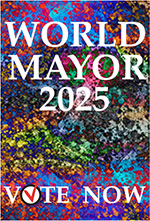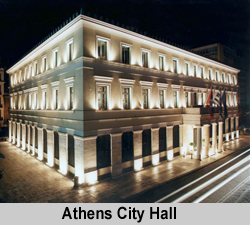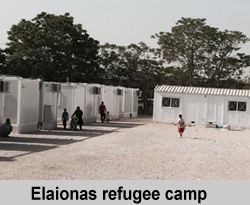
 FRONT PAGE About World Mayor City Mayors Foundation worldmayor@gmail.com Tel: +44 20 8439 7978   WORLD MAYOR 2018 • VOTE NOW • Shortlist 2018 • Longlist 2018 • Raison d'être • World Mayor history • World Mayor Prize • Code of Ethics • Criteria • Meet the Press WORLD MAYOR 2016 • Results 2016 • Project 2016 • Shortlist 2016 • Longlist 2016 • Code of Ethics • World Mayor Prize • World Mayor History • Raison d'être INTERVIEWS WITH • Mayor of Athens • Mayor of Lahr • Mayor of Mechelen TESTIMONIALS • Mayor of Aleppo • Mayor of Amstelveen • Mayor of Athens • Mayor of Cologne • Mayor of Gdansk • Mayor of Grande-Synthe • Mayor of Hettstedt • Mayor of Lahr • Mayor of Lampedusa • Mayor of Lesbos • Mayor of Mechelen • Mayor of Philadelphia • Mayor of Schwäbisch Gmünd ESSAYS BY • Mayor of Aleppo • Mayor of Amstelveen • Mayor of Athens • Mayor of Gdansk • Mayor of Lahr • Mayor of Mechelen • Mayor of Schwäbisch Gmünd PROFILES OF • Mayor of Amstelveen • Mayor of Athens • Mayor of Cologne • Mayor of Gdansk • Mayor of Grande-Synthe • Mayor of Lahr • Mayor of Lampedusa • Mayor of Lesbos • Mayor of Mechelen • Mayor of Schwäbisch Gmünd WORLD MAYOR 2014 WORLD MAYOR 2012 WORLD MAYOR 2010 WORLD MAYOR 2008 WORLD MAYOR 2006 WORLD MAYOR 2005 WORLD MAYOR 2004 |
WORLD MAYOR 2016 The City Mayors Foundation has invited the mayors shortlisted for the 2016 World Mayor Prize to contribute their thoughts on the challenges faced by and opportunities offered to their communities following the arrival of hundreds, if not thousands, of refugees and migrants from war zones and desaster-torn regions of the world. Below Georgios Kaminis, Mayor of Athens, Greece, explains how, against a very challenging economic background, Athens felt it to be its moral duty to provide thousands of refugees with safety and shelter. He also stressed the importance of European cities working together  Essay by Georgios Kaminis Essay by Georgios KaminisMayor of Athens, Greece In the summer of 2015, during the sixth consecutive year into an economic crisis that has severely affected our city, thousands of refugees arrived in Athens on their long journey to other European countries. Within the course of a few weeks, city squares and parks quickly became the unofficial meeting point and temporary home for thousands of refugees. Our city, with very little infrastructure or experience in refugee reception, suddenly found itself in the forefront of the biggest refugee movement since World War II in Europe. The urgency of the situation called for immediate action. We at the Athens Municipality had a moral obligation to act promptly and do our best to safely shelter these individuals and families until they reached their final destination. Being aware of the severity, scale and extent of this humanitarian crisis, I decided to dedicate a municipal space for the creation of the Elaionas camp. Established in August 2015, Elaionas is the first temporary accommodation center in the country, which currently provides shelter to nearly 2.400 refugees. In the months to follow, the City of Athens continued receiving thousands of people. Many of them who were in transit became stranded in our country after the closing of the northern borders in March 2016. To help address the needs for migrants, I appointed a Deputy Mayor for Migrants and Refugees. We also sought strategic partnerships with international organizations such as the UNHCR. With the support of our partners, we were able to provide first reception services and we identified vacant apartments that could house refugees.  For more than a year now, our country has become a final destination for many people. Nearly 10,000 refugees are currently in Athens, awaiting asylum status or relocation to another European country. To this day, nearly 4,000 people are being sheltered in accommodation space provided by the Municipality and its strategic partners. We make a conscious effort to treat refugees with the human dignity they deserve. At the same time, we try to ensure that our city’s social cohesion and everyday life are minimally disrupted. These incoming individuals, many risking their lives to escape war and persecution, have access to our medical services and children can attend school. While we have managed to deal with “the crisis within the crisis”, our biggest challenge is still ahead of us: how to successfully integrate the newcomers in our society. For more than a year now, our country has become a final destination for many people. Nearly 10,000 refugees are currently in Athens, awaiting asylum status or relocation to another European country. To this day, nearly 4,000 people are being sheltered in accommodation space provided by the Municipality and its strategic partners. We make a conscious effort to treat refugees with the human dignity they deserve. At the same time, we try to ensure that our city’s social cohesion and everyday life are minimally disrupted. These incoming individuals, many risking their lives to escape war and persecution, have access to our medical services and children can attend school. While we have managed to deal with “the crisis within the crisis”, our biggest challenge is still ahead of us: how to successfully integrate the newcomers in our society.Cities have shown that local governments can play a decisive role in handling such humanitarian crises where national governments cannot always find common ground to act. Last April, in the framework of the European Capital Mayors’ meeting in Amsterdam, I proposed the creation of a 'Solidarity Cities' network, which was unanimously adopted by all the Mayors. This initiative builds on the experience gained through our efforts to manage the refugee crisis, which has shown us that together we can work much better. Solidarity Cities should seize this opportunity to expand their knowledge, exchange good practices and know-how, and make their voices stronger regarding migration issues. I am honored to be nominated for World Mayor along with Mayors from around the world, who have shown a clear determination and keen sense of responsibility towards the large number of displaced migrants and refugees coming into Europe. I also want to express my gratitude to the civil society, a key actor and a driving force in the process of welcoming and serving the needs of refugees. We still have a lot of work ahead of us but I am confident that cities can rise to the challenges through our commitment to solidarity. |